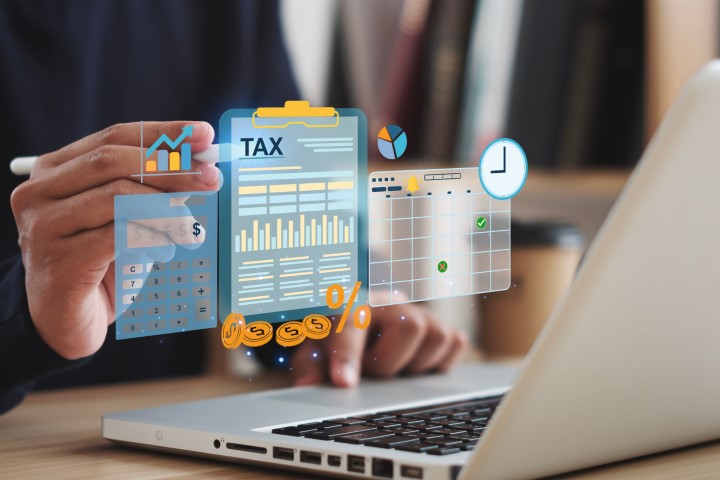When it comes to navigating the labyrinth of personal taxes, it's essential to have a strategic approach in place. From exploring the realm of tax deductions to making the most of tax credits, there are proven methods that can help you optimize your tax situation.
By incorporating savvy techniques like leveraging retirement accounts and deferring income strategically, you can set yourself on a path towards minimizing your tax burden. But that's just the beginning.
Stay tuned to uncover more insights into maximizing tax efficiency and keeping more of your hard-earned money where it belongs: in your pocket.
Key Takeaways
- Itemize deductions like mortgage interest and charitable contributions for tax savings.
- Utilize tax credits for education, energy-efficient improvements, and adoption.
- Maximize retirement account contributions for long-term tax benefits.
- Strategically defer income and invest tax-efficiently for optimal tax optimization.
Understanding Tax Deductions
To maximize your tax savings, it's essential to have a clear understanding of tax deductions available to you. When engaging in tax planning, consider whether itemizing deductions would be more beneficial than taking the standard deduction.
Itemized deductions can include expenses such as mortgage interest, state and local taxes, medical expenses exceeding a certain percentage of your income, and charitable contributions. By carefully tracking and documenting these expenses throughout the year, you can potentially reduce your taxable income and increase your tax refund or decrease the amount you owe.
Be sure to review the current tax laws to ensure you're taking advantage of all eligible deductions and maximizing your tax savings effectively.
Leveraging Tax Credits Wisely
When considering tax optimization, strategically leveraging tax credits can significantly reduce your tax liability. Tax planning is essential in utilizing tax credits to your advantage. By understanding the various tax credits available, you can align them with your financial goals.
Look into credits for education expenses, energy-efficient home improvements, or even adoption costs. Make sure to stay updated on any changes in tax laws that could affect the availability of these credits.
Utilizing tax credits wisely requires proactive consideration and planning, ensuring you maximize your tax savings. Keep your financial goals in mind when exploring different credits to see which ones align best with your objectives.
Utilizing Retirement Accounts
Consider leveraging retirement accounts strategically to optimize your tax planning and financial future. When it comes to personal tax optimization, retirement accounts can be powerful tools. Here are some key strategies to consider:
- Roth Conversions: Evaluate whether converting traditional retirement account funds into a Roth IRA makes sense for your financial situation.
- Maximizing Contribution Limits: Make sure you're contributing the maximum allowed amount to your retirement accounts each year to take full advantage of tax benefits.
- Diversifying Account Types: Consider having a mix of pre-tax and post-tax retirement accounts to give you flexibility in retirement income planning.
- Monitoring Tax Implications: Stay informed about how your retirement account withdrawals will impact your tax liability in retirement.
Implementing Income Deferral Strategies
Implement income deferral strategies to effectively manage your tax obligations and optimize your financial position. By deferring income, you can potentially reduce your current taxable income, providing immediate benefits to your cash flow.
Strategies such as delaying bonuses or consulting income to future years can help lower your tax liability in high-income years. Additionally, timing your investments can play a crucial role in income deferral. Consider holding investments in tax-deferred accounts or delaying the sale of investments to postpone realizing capital gains.
This approach allows you to control when you receive income, aligning it with lower tax brackets or more favorable tax treatment. Strategic income deferral can positively impact your overall financial health and enhance your tax efficiency.
Maximizing Tax-Efficient Investments
To maximize tax efficiency, focus on investing in vehicles that offer favorable tax treatment and potential tax savings. When considering tax-efficient investments, keep in mind the importance of portfolio diversification and strategic tax planning.
Here are four key strategies to help you optimize your investments:
- Utilize tax-advantaged accounts: Take advantage of retirement accounts like IRAs and 401(k)s to benefit from tax-deferred or tax-free growth.
- Consider municipal bonds: Invest in municipal bonds to potentially receive tax-free interest income at the federal and sometimes state level.
- Hold investments for the long term: Capital gains from investments held for over a year are typically taxed at a lower rate, promoting tax efficiency.
- Implement tax-loss harvesting: Offset capital gains by selling investments at a loss to reduce your overall tax liability while maintaining your asset allocation strategy.
Frequently Asked Questions
How Can I Protect My Assets From Potential Tax Audits?
To safeguard your assets from potential tax audits, keep thorough records of all financial transactions and ensure compliance with tax laws. Consider setting up a trust or creating a business entity to protect your assets.
Regularly review and update your financial documentation to maintain accuracy. Seek advice from a tax professional to ensure you're utilizing all available strategies for asset protection and tax audit prevention.
Are There Any Tax Optimization Strategies Specifically for Self-Employed Individuals?
When you're self-employed, optimizing your taxes is crucial. Consider maximizing retirement planning options for tax benefits.
Track all business expenses diligently for deductions. Ensure you're taking advantage of all deductions available to self-employed individuals.
Stay organized and keep detailed records to make tax season smoother. By focusing on retirement planning and business expenses, you can lower your tax burden and keep more of your hard-earned money.
What Are the Potential Tax Implications of Cryptocurrency Investments?
When it comes to cryptocurrency investments, it's crucial to understand the tax implications. Crypto taxes can be complex due to the evolving regulations surrounding digital assets.
The gains from your investments are typically subject to capital gains tax. It's important to keep detailed records of your transactions to accurately report them.
Stay informed about the latest tax regulations to ensure compliance and optimize your tax situation.
How Can I Minimize Taxes on Inheritance or Gifts Received?
To minimize taxes on inheritance or gifts received, consider strategic gifting strategies. Plan ahead by gifting assets that have potential for growth to utilize lower tax rates.
Utilize annual gift tax exclusions to distribute assets tax-free to beneficiaries. By being proactive and thoughtful in your gifting approach, you can reduce the tax burden on your inheritances and gifts, ensuring more assets stay in the hands of your loved ones.
Are There Any Tax Optimization Strategies for International Investments or Income?
When dealing with international investments or income, cross border planning is key to optimizing your taxes. Make sure to understand the tax implications of foreign income and consider using tax treaties to your advantage.
Stay informed about any tax credits or deductions available for international investments. Consulting with a tax professional who specializes in international tax matters can also help you navigate complex tax laws and ensure you're not overpaying.
Conclusion
In conclusion, by understanding tax deductions, leveraging tax credits wisely, utilizing retirement accounts, implementing income deferral strategies, and maximizing tax-efficient investments, you can optimize your personal taxes effectively. Take advantage of these proven strategies to minimize your tax burden and keep more of your hard-earned money in your pocket.
With careful planning and smart financial decisions, you can achieve significant savings and secure your financial future. Don't wait, start implementing these strategies today!

